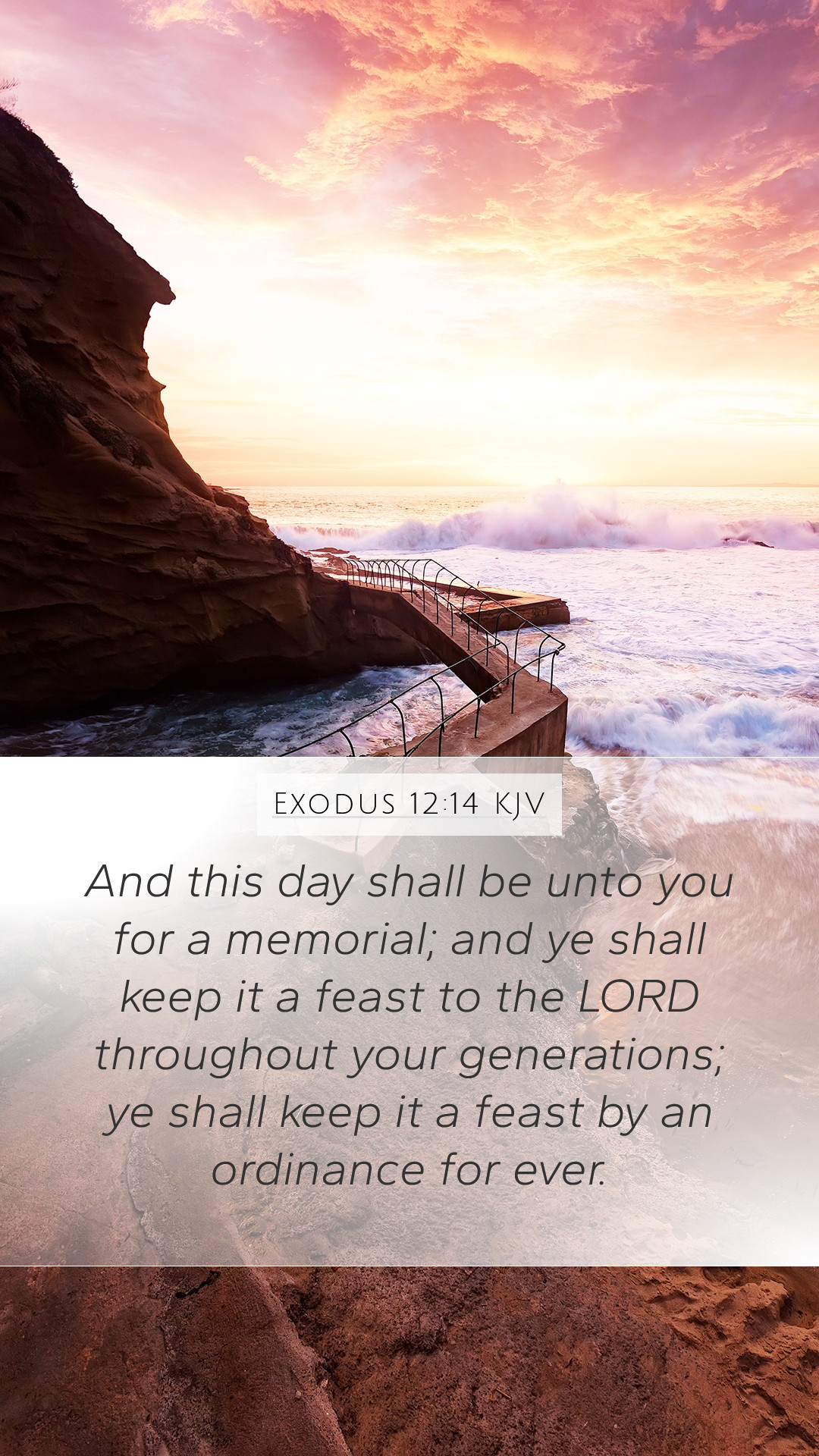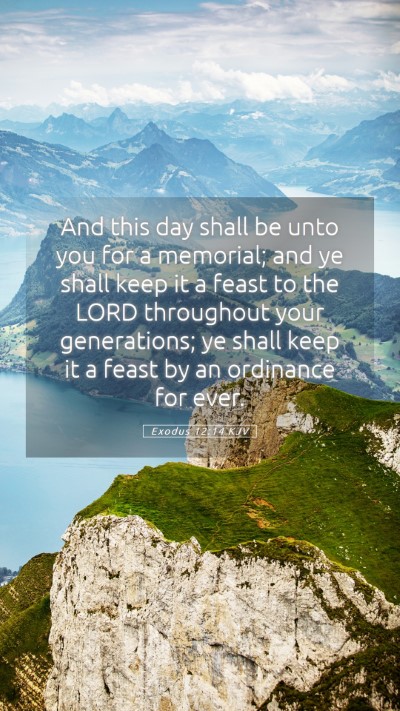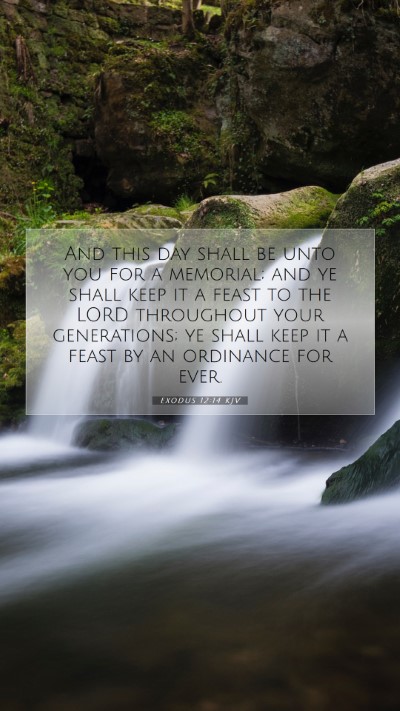Understanding Exodus 12:14
Verse: Exodus 12:14 states: "And this day shall be unto you for a memorial; and ye shall keep it a feast to the Lord throughout your generations; ye shall keep it a feast by an ordinance for ever."
Summary of Biblical Significance
This verse emphasizes the importance of the Passover feast, establishing it as a perpetual memorial for the Israelites. The instructions given here represent both a command and a covenant, reinforcing the significance of God's deliverance of His people from Egypt. The act of remembrance is foundational for faith and community identity among the Israelites as well as a model for understanding God's redemptive work throughout biblical history.
Bible Verse Commentary Insights
-
Matthew Henry:
Henry explains that this day is to be kept as a memorial of the deliverance from Egypt. The emphasis on "keeping it a feast" points to the necessity of recognizing God’s acts in history and celebrating His faithfulness.
-
Albert Barnes:
Barnes notes that the Passover is a significantly commemorative event that not only recalls the Israelites' escape from bondage but also signifies a future hope of redemption. Each generation is called to uphold this ordinance as a testament to God's enduring mercy and covenant.
-
Adam Clarke:
Clarke highlights the religious implications of establishing such a feast. He describes how the perpetuation of this celebration instills gratitude and acknowledgment of God's providence in the hearts of the people. Additionally, he underscores how it contributes to a communal identity, binding the generations together through shared remembrance.
Bible Verse Meanings and Interpretations
This Bible verse is a pivotal point in Jewish tradition. It marks the transition from slavery to freedom and encapsulates the core theme of redemption that runs throughout Scripture. The observance of the Passover is not merely about the past; it is a forward-looking hope rooted in faithfulness to God’s word. Understanding this verse involves recognizing its layers of meaning—historical, spiritual, and communal.
In-Depth Analysis of the Verse
Exodus 12:14 serves multiple purposes within its context. It commands a ritual, signifies Divine deliverance, and establishes a tradition for worship. Each element serves to deepen the relationship between God and His people, fostering a community defined by memory and reverence.
Significance of the Feast
The feast described is not only a celebration but also acts as a teaching tool for future generations. By observing this day as a memorial, the Israelites are reminded of their covenant and the faithfulness of God in their history. It also calls to mind future deliverance, hinting at broader themes of salvation that echo throughout both the Old and New Testaments.
Application to Daily Life
For modern readers, this verse prompts reflection on how we remember significant acts of deliverance in our lives. It encourages the practice of remembering God's faithfulness and how such memories can strengthen our faith. This can be incorporated into personal and communal worship, recognizing the importance of rituals that anchor our faith in history.
Cross References
- Leviticus 23:5: Establishes the Passover feast in further detail.
- Deuteronomy 16:1-3: Reiterates the command to celebrate Passover.
- John 1:29: Points to the significance of Jesus as the Paschal Lamb.
Conclusion
Exodus 12:14 is rich in meaning and significance, offering deep insights into the nature of God's covenant relationship with His people. Studying this verse offers valuable Bible study insights and invites believers to explore their own commemorations of divine acts in their lives. The call to remember is timeless and transcends the specific context of Ancient Israel, reaching into the heart of Christian worship and the communal life of faith.


